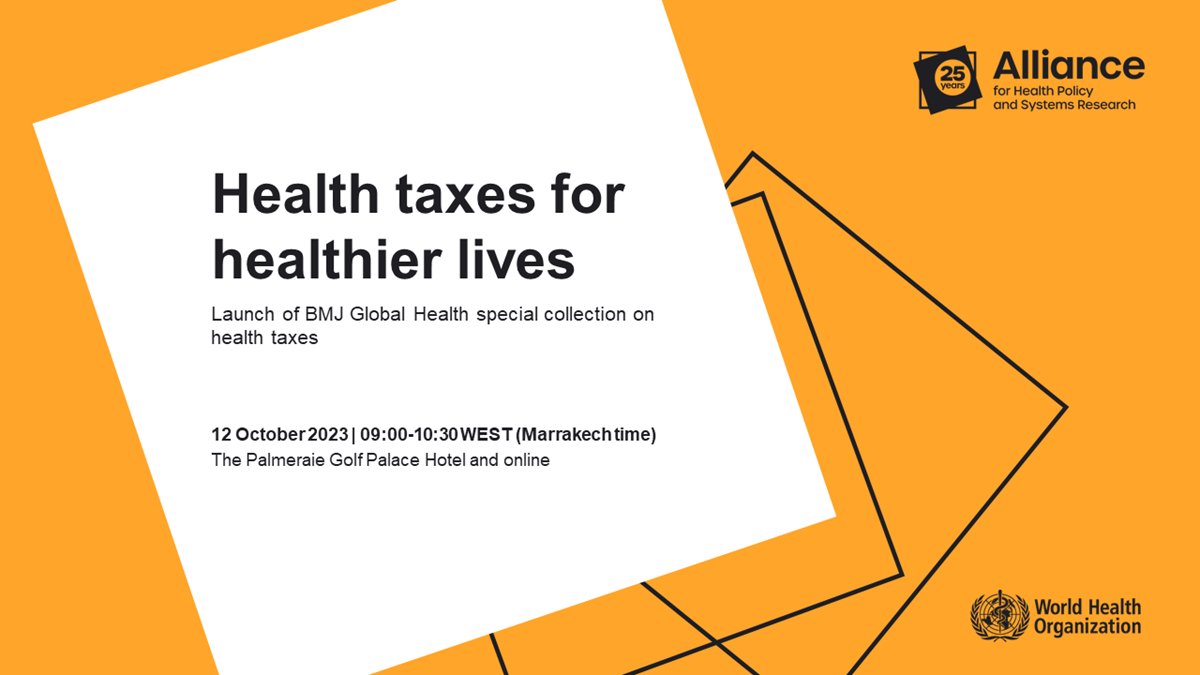BMJ Global Health has published a series of research papers on health taxes in the October 2023 issue titled WHO: Health Taxes supported by the Alliance for Health Policy and Systems Research in collaboration with WHO Departments and the Inter-Agency Working Group on Health Taxes.
Health taxes can save lives, raise government revenues and improve equity. However, they directly conflict with commercial actors’ interests. Both pro-tax health advocates and anti-tax industry representatives seek to frame health tax policy. A lack of appreciation for political challenges can hamper national adaptation and adoption of health taxes. There is increasing recognition of the need to explore political economy factors – while any health policy process is inherently political, applying health policy and political economy analysis can improve policy design and accelerate implementation.
The series is a result of the establishment of a research programme to provide health policy analysis for health taxes in eight low- and middle-income countries in 2021 with research teams in Bangladesh, Ethiopia, Ghana, Indonesia, Nepal, Pakistan, Peru and Viet Nam. The programme developed case studies examining how political economy factors influence and frame health taxes design, adoption and implementation.
In the WHO: Health Taxes issue, BMJ Global has released a total of 15 peer-reviewed scientific papers on the subject of health taxes listed here.
ANALYSIS
-
Framing health taxes: learning from low- and middle-income countries (13 October 2023)
ORIGINAL RESEARCH
-
Framing health taxes: a scoping review (9 October, 2023)
PRACTICE
-
Scaling up food pricing policies in the Pacific: a guide to action (9 October 2023)
The collection was launched last week through an event hosted by the Alliance for Health Policy and Systems Research (a WHO-hosted partnership) with support from the Government of Norway and in collaboration with WHO and the Inter-Agency Working Group on Health Taxes.




COMMENTARY